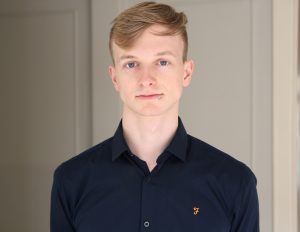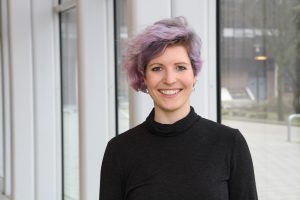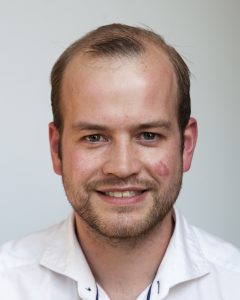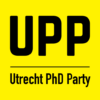2017-2019
Nico Naus, Faculty of Science

After completing both my Bachelor and Master at Utrecht University, I started as a PhD candidate in 2015. I’m part of the Software Technology (for Learning and Teaching) group at the department of information and computing science (faculty of natural sciences). In my research, I focus on software analysis, compiler technology and generic end-user feedback systems. From the start, I have been a member of the PhD council of the Graduate School of Natural Sciences, to improve the position of PhD candidates. The council is in constant contact with policy makers to represent the interests of PhD candidates. I am also part of the PhD council of the national graduate school IPA, and currently I’m founding a departmental PhD council as well. All graduate schools have PhD councils, which is great, but it is very important that PhD candidates are also represented at university level. The University Council is a great instrument for this, since it has a definitive say in policy decisions.
During my term, I have worked on several issues regarding the quality of the PhD experience. Not every PhD candidate has access to good, affordable courses, for example. Currently this situation has been improved, both for bursary and employed PhD candidates.
Stephanie de Smale, Faculty of Humanities

From 2017 until Spring 2019, I was a member of the University Council for Utrecht PhD Party as one of our founding members. My background is in new media and communication studies, doing both my academic master and research master at Utrecht University. In 2015 I started my PhD on moral war games, which is part of an interdisciplinary project between conflict studies, new media studies, and software studies. Early on in my PhD I’ve been actively involved in the Humanities PhD council and since this year I am also chair of the board. One of the things I worked on during my term in the council, was improving the rights of PhD candidates. For instance by embedding the right to obtain a teaching degree (BKO) on a University-level. Currently, the threshold to obtain a BKO is too high, and right for PhDs to obtain their teaching degree is decided on a faculty level, creating inequality between PhDs from different faculties. Equal opportunities to obtain a BKO is especially important because it improves the didactic quality of teaching on the one hand, and increases the position of PhD candidates on the academic job market on the other. However, as we stated in our party programme, this should not be at the cost of the candidates’ research and teaching balance. This is just one point I defended in the past years.
2015-2017
Eliane Fankhauser, Faculty of Humanities

From 2015-2017 I have been a representative of the University Council at Utrecht University. Prior to my decision to stand as a candidate for the University Council in 2015 I was little involved in the UU’s internal politics. Upon a visit to one of the meetings of the University Council with the board I realized how important the topics discussed there are and that the council and their members actually do exert influence on the administration of this big institution. This proved to be true: during the first year of my term (2015-16) I worked on a notice about the say in the PhD regulations (‘promotiereglement’) together with my PhD fellow and council member Frank Hendriks. The PhD regulations which concern the obtainment of the doctoral degree is beyond the say of any council. This is true for the UU but also for all other universities in The Netherlands. With our notice we opted for changes in the PhD regulations to be presented to the University Council first. In the end the rector did not give in to our claim but we agreed on informal meetings if questions and remarks about the PhD regulation arise (this happened once in the past academic year).
In the second year two aspects were still of central importance: the right to vote for bursary PhDs and the set-up of a PhD party, the UPP (Utrecht PhD Party). The fact that bursary PhDs will be able to vote for the first time in May is due to Frank’s and my effort. During a commission meeting we succeeded in convincing the board of the importance to include bursary PhDs in the participation of this university. During my term, furthermore, it became clear to me that PhDs with their temporary contracts and the defense of their dissertation, have yet different interests from regular employees at the UU. With the establishment of the Utrecht PhD Party I hope that specific interests of PhDs on a broader university level will be discussed and taken into account even more frequently than they are now.
All in all I look back at two very interesting and instructive years during which I was able to achieve a lot for my colleagues in addition to establishing useful contacts. The latter not least could be of importance for my future career.
Frank Hendriks, Faculty of Science

My name is Frank Hendriks and from September 2015 until November 2016 I was a member of the personnel fraction of the University Council. I first gained experience in co-participation in the PhD council of the Graduate School of Natural Sciences, after which I decided to stand election for the University Council in the start of 2015. After a short but active campaign, my election as a member of the University Council was official. The best thing about being a member of the University Council is the possibility to discuss the future of the university with the University Board. During my time in the council, this was made tangible by the realization of the Strategic Plan of the University of Utrecht, to which the University Council actively contributed. It is important to have a critical look at the plans of the University board, to make sure they are feasible and that the everybody’s interests are taken into account. After years with little or no PhDs in the University Council, this time there were two in the council: myself and Eliane Fankhauser of Humanities. This made it possible for us to effectively guard the interests of PhDs within university policy.
